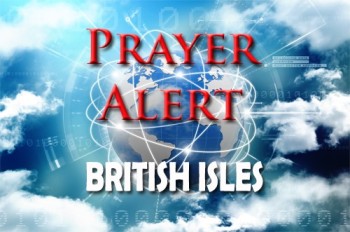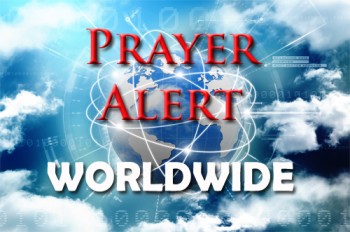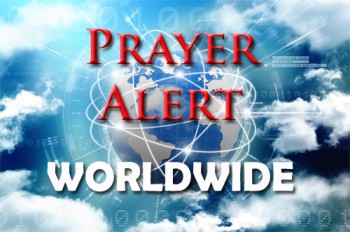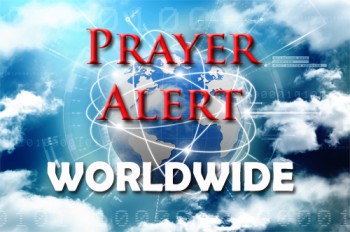Displaying items by tag: gangs
Colombia: gang blocks church, pastor preaches outside
Asking permission to preach was necessary for Leonardo. Not asking could result in death from Colombian guerrillas or paramilitaries. Pastors are obstacles to guerrillas’ political ambitions, as young Christians are no longer attracted to their violent lifestyles. One Sunday gangs stopped him outside the church saying, ‘Today no church preaching!’ So with a speaker and microphone he preached outdoors to young boys. Very quickly his outdoor church grew to 70 adults and 53 children. Most had never heard the gospel, but they soon found faith in Christ and were baptised. Now Leonardo is training several others to preach. It is dangerous to share the gospel so openly, but he knows God is with him.
Northern Ireland: people-smuggling arrests
On 3 August thirty police officers and immigration officials raided two properties and detained a 40-year-old woman and a 26-year-old man, both originally from Somalia, on suspicion of offences linked to people-smuggling. The pair have lived in Northern Ireland for ten years; authorities believe they are part of an operation being run by an organised crime gang transporting people into the UK. Officers also searched the addresses for cash. Immigration officials say that individuals can pay gangs between £2,500 and £15,000 to be brought into the UK, often exploiting the Common Travel Area with the Republic of Ireland. Priti Patel said the operation showed expertly-trained officers working tirelessly to keep our country safe by disrupting suspected criminal activity. An immigration enforcement officer said this was just one of the ways they worked with the police to act against people-smuggling.
‘Miraculous’ missionary escape in Haiti
In October we asked you to pray for the release and safe return of missionaries held hostage in Haiti. On 16 December the twelve Canadian and American missionaries made a daring night-time escape walking on rough moonlit terrain following the sheer guidance of the stars. After a number of hours of walking, day began to dawn, and they eventually found someone who helped them make a phone call for help. They were finally free. They had faced difficult and intense circumstances in captivity, including sweltering heat, mosquito bites and limited access to food.
Haiti: gangs complicating earthquake relief efforts
As if Haiti doesn’t have enough to deal with, gang activity is now complicating earthquake relief efforts. The earthquake death toll stands at 2,200 with at least 340 still missing. Mission Aviation Fellowship (MAF) is conducting emergency medical flights and flying in aid. But since the roads aren’t a great option for transporting relief, the need is overwhelming. MAF’s Dave McCleery says, ‘Gang activity has affected Port-au-Prince for a long time. They have taken control of and closed the main roads into the southern peninsula where the earthquake took place. This is a real concern because of the large quantity of aid that’s needed. We can certainly fly in and deliver it, but it’s much more expensive and takes a lot longer than if it’s delivered by road.’
Haiti: seven clergy held for ransom
Kidnappings for ransom have surged as gangs gain influence amid a political crisis. Seven Catholic clergy, five Haitian and two French, have been kidnapped. The five priests and two nuns were abducted in a commune northeast of Port-au-Prince, while they were on their way to the installation of a new parish priest. The kidnappers demanded $1m ransom for them. The Haitian Conference of Believers said three other people had been kidnapped at the same time. Authorities suspect an armed gang called ‘400 Mawozo’ which kidnaps for ransom. Armed gangs have increased as the nation is rocked by political unrest. Gang violence and political instability has drawn protesters onto the streets at the subhuman situation where the political leaders cling to power, but are increasingly powerless.
Venezuela: backstory to crisis
Juan Guaidó and Nicolás Maduro both claim to be president. While resolving their standoff over leadership is critical, finding prosperous and stable paths forward requires taming criminal non-state groups controlling local territory and illicit industries across Venezuela, often operating with overlapping allegiances and activities. Well-armed neighbourhood criminal gangs called colectivos have been co-opted by the regime to suppress dissent in the capital and work with other quasi-official repression squads that it has created as an insurance against fickle loyalties of rank and file soldiers and police. There are also regional criminal syndicates controlling illegal mining and drug trafficking industries, which operate alongside local or national officials and transnational crime networks. If a resolution is achieved between Guaidó and Maduro, these groups will want to expand their positions and exploit any local power vacuums created. Pope Francis has expressed an openness to mediate in Venezuela’s political situation if both sides are willing. See





